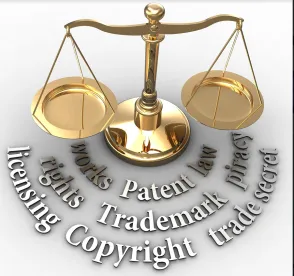Addressing 35 USC § 315(b), the US Court of Appeals for the Federal Circuit sat en banc to determine whether dismissal “without prejudice” would extinguish the effect of a previously served infringement complaint, an event that would otherwise trigger the start of the one-year time limit for filing an inter partes review (IPR) petition. Click-to-Call Techs., LP v. Ingenio, Inc., Case No. 15-1242 (Fed. Cir. Aug. 16, 2018) (O’Malley, J) (Taranto, J, concurring) (Dyk and Lourie, JJ, dissenting). The majority held that the one-year clock runs from service of a complaint, even if the case is later dismissed without prejudice.
Ingenio was a successor-in-interest to Keen, Inc., which had been involved in an infringement action several years earlier involving the challenged patent. Keen had been served with a complaint alleging infringement of the patent on September 14, 2001. Eventually, the parties settled, and the district court granted the parties’ motion to dismiss the district court action “without prejudice.” On May 28, 2013, Ingenio filed a petition for IPR on the patent.
Click-to-Call, the current owner of the patent, argued that Ingenio’s IPR petition was time barred under § 315(b) because Ingenio’s predecessor-in-interest (Keen) had been served with a complaint alleging infringement of the patent more than 10 years earlier. Ingenio argued that § 315(b) did not apply because the prior action had been dismissed without prejudice, which operated to nullify the prior action, and it was as if service of the complaint had never occurred. The Patent Trial and Appeal Board (PTAB) agreed, instituted review and cancelled the challenged claims. Click-to-Call appealed.
On appeal, the en banc majority disagreed with the PTAB’s decision, finding that the one-year clock under § 315(b) remained unaffected by subsequent events in the case, including a dismissal without prejudice. Under Chevron step one, the Federal Circuit found the language of § 315(b)—“more than 1 year after the date on which the petitioner . . . is served with a complaint alleging infringement of the patent”—unambiguous, and the PTAB therefore had no authority to interpret its meaning. Even if there were an ambiguity, the Federal Circuit found the PTAB’s interpretation unreasonable under Chevron step two. The PTAB interpreted “served with a complaint” as capable of being nullified if the case were later dismissed “without prejudice,” because such a dismissal restores the parties to the situation that existed before the complaint was filed. The resulting legal effect is that service never occurred. Although true with respect to the propriety of service for the underlying action, the Federal Circuit found that a dismissal did not nullify the triggering effect of § 315(b).
Judge Taranto concurred but wrote separately to note that Congress knew how to modify a statute to account for the legal effect of a dismissal without prejudice, as it did in § 315(a)(2)(C), which specifically addresses such voluntary dismissals with respect to that provision. As § 315(b) is silent, a dismissal of the action would not affect the clock-starting effect of being “served with a complaint alleging infringement” for purposes of the one-year time bar.
The dissent would have affirmed the PTAB’s position, arguing that Congress drafted § 315(b) with a full understanding of the background principle of law that a voluntary dismissal without prejudice has a nullifying effect. Further, the dissent warned that the majority’s rule would lead to an abusive practice where a patent owner could serve a complaint for infringement and then immediately dismiss the action without prejudice to trigger the defendant’s one-year clock for filing an IPR.
Practice Note: Review the relevant jurisdiction’s long-arm statute to calculate the date of service. The Federal Circuit did not decide what act constitutes “served with a complaint” for purposes of § 315(b). At least one PTAB panel recently held that under Delaware law, a complaint is “served” on the date the summons and complaint are mailed to the defendant. Vizio Inc. v. ATI Techs. ULC, Case No. IPR2018-00560 (PTAB Aug. 14, 2018) (finding the petition time barred by two days based on the date of mailing).



 />i
/>i

